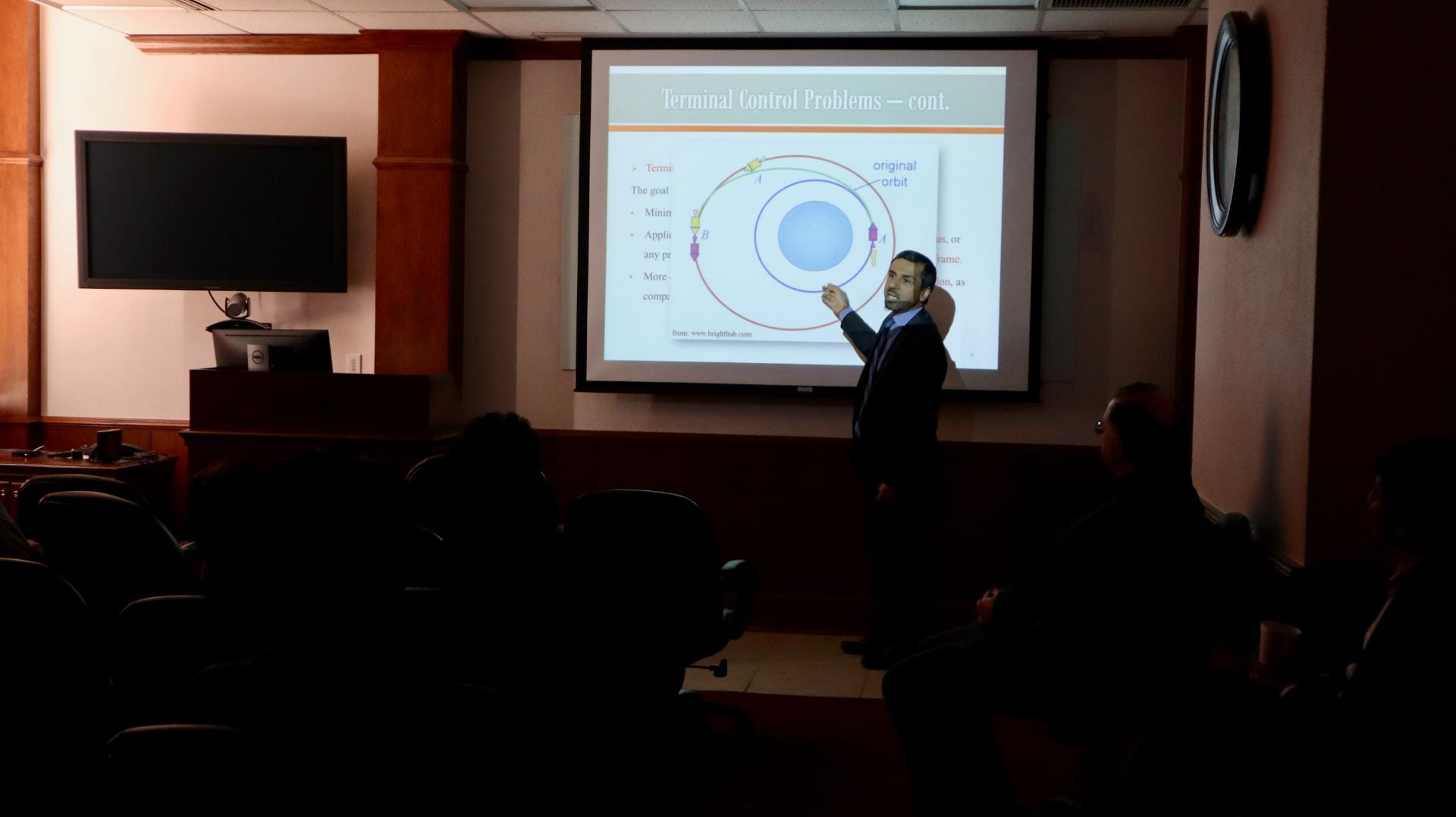Ali Heydari, Ph.D., an assistant professor of Mechanical Engineering at Southern Methodist University, gave a seminar on Monday, February 17th. He spoke about, “Theory of Reinforcement Learning and Its Practice in Robotics and Autonomous Systems.”
Abstract: Ali Heydari received his B.S. and M.S. degrees from Sharif University of Technology, Iran, in 2005 and 2008, respectively, and his Ph.D. degree from the Missouri University of Science and Technology, Rolla, Missouri, in 2013. He is currently an assistant professor of mechanical engineering at the Southern Methodist University, Dallas, Texas. His research is mainly focused on Adaptive Dynamic Programming and on applications of this machine learning scheme in robotics and autonomous systems. He serves on the editorial boards of IEEE Transactions on Neural Networks and Learning Systems and IEEE Transactions on Vehicular Technology.
Biography: Control plays the role of enabler in mechanisms in which, a parameter “changes”. For decades, a controller design was deemed successful, when the desired motion/change was achieved. However, today, the standards are much higher. “Qualities” including low energy consumption for a better range, human friendliness for safe and efficient interactions, high accuracy and productivity, high robustness to uncertainties and imperfections, and small footprint on environment are important “requirements” now.
Adaptive Dynamic Programming (ADP), also called Reinforcement Learning (RL), has a great potential to win in these new domains. The reason is, ADP/RL is motivated by nature, that is, the perfect way humans learn to operate machinery and control mechanisms. As an “intelligent control” tool, however, ADP/RL has been subject to shortcomings both in terms of its “rigor” (guarantees of desired performance) and its “scalability” (possibility of extension to challenging problems, beyond toy examples). An overview of my past and future research activities on resolving these two deficiencies will be presented in the seminar. Moreover, applications of the developed methods in challenging problems of autonomous systems and robotics will be discussed, including human-machine interaction and co-design of mechanisms and their controllers.
